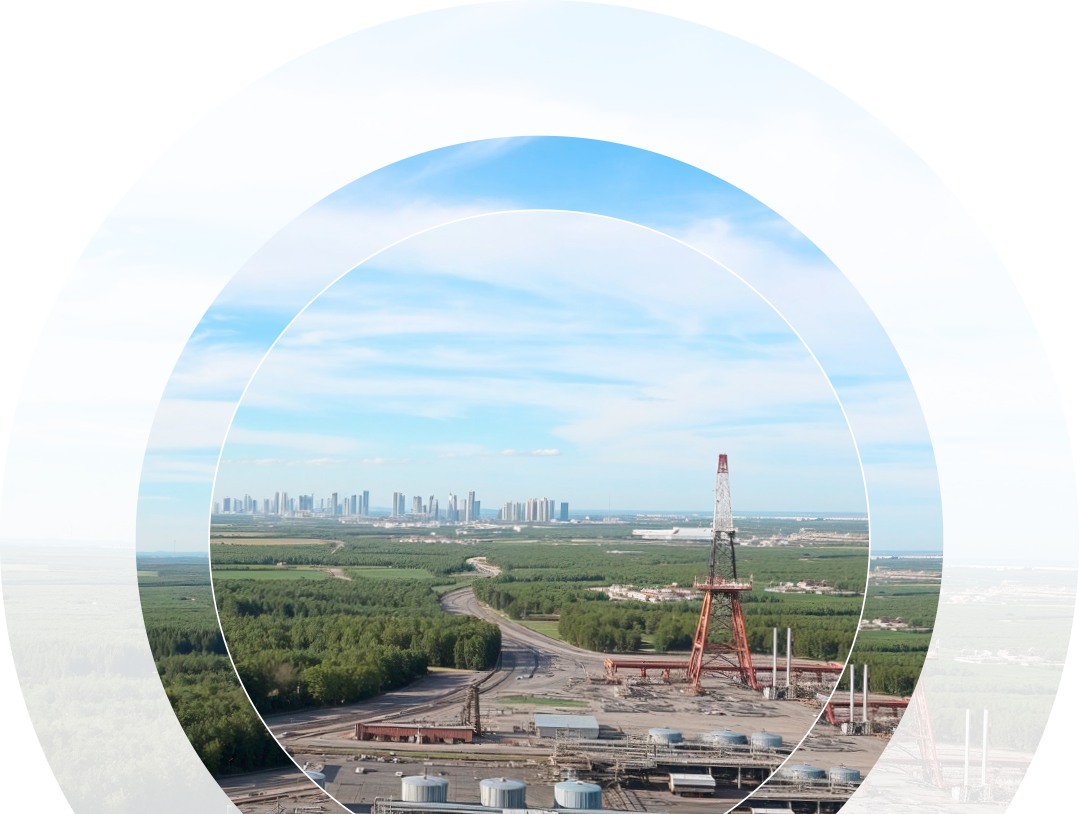Contribution to the UN Sustainable Development Goals (SDGs)
NC KazMunayGas JSC strives to contribute to sustainable development by integrating the core principles of the United Nations, global trends, Kazakhstan’s development priorities, and universal values into its business strategy. The Company adheres to all 17 UN Sustainable Development Goals and actively supports their implementation.
Taking into account strategic priorities and key objectives, KMG focuses on contributing to 10 priority SDGs and 24 relevant targets. These goals are pursued through strategic initiatives aimed at enhancing operational efficiency, improving working conditions, creating opportunities for employees, supporting local communities, protecting the environment, and fostering innovation.
Engagement with stakeholders and adherence to international standards enable the Company to consistently move toward a sustainable future.
|
Targets |
KMG’s Contribution |
|
|---|---|---|
|
|
Good Health and Well-being |
|
|
3.8 Achieve universal health coverage, including access to quality essential health-care services and access to safe, effective, quality, and affordable essential medicines and vaccines. 3.9 Substantially reduce the number of deaths and illnesses from hazardous chemicals and air, water, and soil pollution and contamination. |
Priority Ensure healthy lives and promote well-being for all at all ages. 2024 Results:
Key Initiatives:
|
|
|
|
Gender Equality |
|
|
5.1 Eliminate all forms of discrimination against all women and girls everywhere. 5.5 Ensure women’s full and effective participation and equal opportunities for leadership at all levels of decision-making in political, economic, and public life. |
Priority Ensuring gender equality and empowering all women and girls. Results in 2024:
Key initiatives:
|
|
|
|
Affordable and Clean Energy |
|
|
7.1 Ensure access to affordable, reliable, and modern energy services for all. 7.b Expand infrastructure and upgrade technology for supplying modern and sustainable energy services |
Priority
Results in 2024:
Key Initiatives:
|
|
|
|
Decent Work and Economic Growth |
|
|
8.5 Achieve full and productive employment and decent work for all women and men, including for young people and persons with disabilities, and equal pay for work of equal value. 8.6 Substantially reduce the proportion of youth not in employment, education, or training. 8.8 Protect labor rights and promote safe and secure working environments for all workers. |
Priority Promoting sustained, inclusive, and sustainable economic growth, full and productive employment, and decent work for all. 2024 Results:
Key Initiatives:
|
|
|
|
Industry, Innovation and Infrastructure |
|
|
9.1 Develop quality, reliable, sustainable and resilient infrastructure, including regional and transborder infrastructure, to support economic development and human well-being, with a focus on affordable and equitable access for all. 9.4 By 2030, upgrade infrastructure and retrofit industries to make them sustainable, with increased resource-use efficiency and greater adoption of clean and environmentally sound technologies and industrial processes. |
Priority Development of sustainable infrastructure, promotion of inclusive and sustainable industrialization and innovation. Results in 2024:
Key initiatives:
|
|
|
|
Sustainable Cities and Communities |
|
|
11.2 Ensure access to safe, affordable, accessible and sustainable transport systems for all, improving road safety, notably by expanding public transport, with special attention to the needs of those in vulnerable situations, including women, children, persons with disabilities and older persons. 11.6 Reduce the adverse per capita environmental impact of cities, including by paying special attention to air quality and municipal and other waste management. |
Priority Ensure inclusive, safe, resilient, and sustainable cities and human settlements 2024 Results:
Key Initiatives:
|
|
|
|
Responsible Consumption and Production |
|
|
12.4 Achieve environmentally sound management of chemicals and all wastes throughout their life cycle in accordance with agreed international frameworks and significantly reduce their release into the air, water, and soil to minimize their adverse impacts on human health and the environment. 12.5 By 2030, substantially reduce waste generation through prevention, reduction, recycling, and reuse. 12.6 Encourage companies, especially large and transnational companies, to adopt sustainable practices and integrate sustainability information into their reporting cycle. |
Priority Facilitating the transition to responsible consumption and production models. 2024 Results:
Key Initiatives:
|
|
|
|
Climate Action |
|
|
13.2 Integrate climate change measures into national policies, strategies, and planning. 13.3 Improve education, awareness-raising, and human and institutional capacity on climate change mitigation, adaptation, impact reduction, and early warning. |
Priority: Take urgent action to combat climate change and its impacts. 2024 Results:
Key Initiatives:
|
|
|
|
Life on Land |
|
|
15.3 Combat desertification, restore degraded land and soil, including land affected by desertification, drought, and floods, and strive to achieve a land degradation-neutral world. 15.5 Take urgent and significant action to reduce the degradation of natural habitats, halt the loss of biodiversity, and ensure the conservation and protection of threatened species. |
Priority: Protection and restoration of terrestrial ecosystems, promotion of their sustainable use, sustainable forest management, combating desertification, halting and reversing land degradation, and halting biodiversity loss. 2024 Results:
Key Initiatives:
|
|
|
|
Partnerships for the Goals |
|
|
17.1 Strengthen domestic resource mobilization, including through international support to developing countries, to improve domestic capacity for tax and other revenue collection. 17.16 Enhance the Global Partnership for Sustainable Development, complemented by multi-stakeholder partnerships that mobilize and share knowledge, expertise, technology, and financial resources to support the achievement of the Sustainable Development Goals in all countries, particularly developing countries. 17.17 Encourage and promote effective public, public-private, and civil society partnerships, building on the experience and resourcing strategies of partnerships. |
Priority: Enhancing engagement within the Global Partnership for Sustainable Development. 2024 Results:
Key Initiatives:
|
|











